Monday, 27 October 2008
စိန္ေက်ာ္ေက်ာ္နိင္ရဲ ့ ျမန္မာ ့ဆိုင္းလက္သံ နားစင္နိင္မည္။
အရိုးတြင္ အရြက္မဖံုးပါဘူး။ ျမန္မာ့ရိုးရာ အေမြအစစ္ဖို ့တီးလိုက္ပံုက မိုးသို ့ျခံဳး ။ စိန္ေက်ာ္ေက်ာ္နိင္ဆိုတာသူပါပဲ။ သံစံုကြန္ ့့့့ျမဴးလက္သံထူးလွတဲ့ သူရဲ ့လက္သံကို ၾကားရသူတိုင္း ဒါဟာ ျမန္မာပါလားလို ့ဂုဏ္ယူေမာ္ၾကြားရေစမယ္။ ဗံု ( Drum) ကို ဆိုလို
တီး တာ ျမန္မာ့ ဆိုင္းရဲ ့ထူးျခားတဲ့ ၀ိေသသပါ။ သင့္တို ့ရဲ ့ နာက်ဥ္းေနတဲ့အသည္းႏွလံုး၊ သင္တို ့ရဲ ့ေမွးမိန္ ့ခံရတဲ့ အမ်ိဳးသားေရးဂုဏ္သိကၡာေတြကို တဖန္ ျပန္လည္ ႏိုးၾကားေစနိင္ဖို ့ စိန္ေက်ာ္ေက်ာ္နိင္လာျပီ။ သူလက္သံကို လာလွည္ ့။ နားစင္လွည္ ့ၾကပါ။ တကယ္ေတာ္လို ့ေက်ာ္တဲ့သူပါ။ ကိုထြန္းေနဦးထံမွာ ၀ယ္ယူနိင္ပါျပီ။ www.stonybrook.edu/wang
http://www.stonybrook.edu/sb/wang/events.shtml
"An exhilarating tease, defying expectations of symmetry or steady tempo. A phrase might be repeated like a big-band riff or never heard again; a terse line is followed by one that just keeps on going. Tunes that start out as stately as fanfares wind up scampering at top speed, while melodic lines may be staggered between instruments, bounced around like question-answer exchanges or suddenly played in precise unison, accelerating as they go. Instead of marking the beginning of a phrase, as Western percussion often does, the Burmese percussionists often kicked in at the end of a melody"–New York Times
Discover Burma in an enriching night with Kyaw Kyaw Naing and friends. Naing, a master of the pat waing, a traditional Burmese drum-circle instrument comprised of 21 separately tuned drums surrounded by a horseshoe-shaped shell made of elaborately carved wood and decorated with gold leaf, perfected his art and improvisational skills in exhausting hours-long Burmese ceremonies for days on end. The son of U Sein Chit Tee, who led a Burmese orchestra in New York in 1975, Naing's has continued his father's legacy a generation later and is be accompanied by his wife, who performs Burmese dance, and other experts. Reception of traditional Burmese food to follow. In collaboration with Tun Nay Oo.
"Myanmar, the Southeast Asian nation formerly known as Burma, is home to a
vibrant and cosmopolitan musical tradition...Overshadowed by India and
Indonesia, and long hidden by a repressive military dictatorship, it remains one of world music's final frontiers"–New York Times
"An exhilarating tease, defying expectations of symmetry or steady tempo. A phrase might be repeated like a big-band riff or never heard again; a terse line is followed by one that just keeps on going. Tunes that start out as stately as fanfares wind up scampering at top speed, while melodic lines may be staggered between instruments, bounced around like question-answer exchanges or suddenly played in precise unison, accelerating as they go. Instead of marking the beginning of a phrase, as Western percussion often does, the Burmese percussionists often kicked in at the end of a melody"–New York Times
Tickets: $10 for students & seniors; $15 general admission; $25 VIP
(reserved front row seating). Purchase tickets online
Sunday, November 16, 6:00 pm, Wang Theatre
Subscribe to:
Post Comments
(
Atom
)



























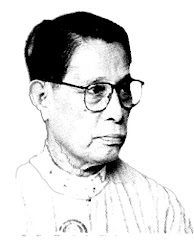


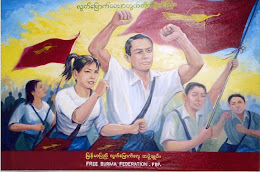





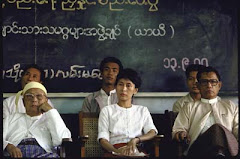

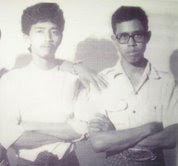

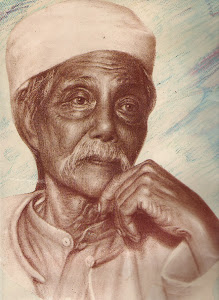
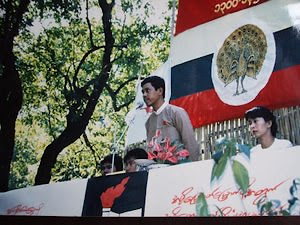
No comments :
Post a Comment